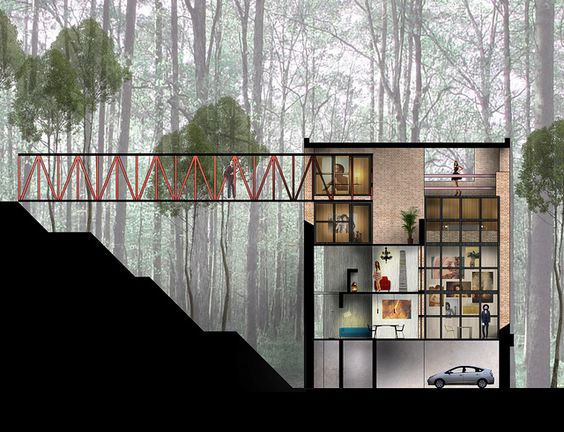You have no items in your cart. Want to get some nice things?
Go shopping
Hollis could say that his was a happy childhood, up to a point. Mother, father, older brother: things exactly as they were supposed to be. Dad went to work every day in one of three grey suits: going to the factory offices, and never coming home with his hands dirty.
Ten minutes before Hollis and Gordon went to catch the bus, the same things happened every day. Dad ruffled their heads, said: ‘Ta-ra, lads,’ kissed Ma on the cheek, then went out in his coat and hat, carrying his briefcase.
One corner of the garden was his and Gordon’s own. It was the place they played Terror, shooting one another with sticks for guns. Over the tops of felled logs and loose fence panels. Muddy in those trenches they’d dug, only knowing it was time to come in when Ma called them in for tea.
He remembered: a long splinter in his thumb pad. The smell of frying sausage and onions. Being told to wash his face, and never wanting to. White crockery and forks. When he cleared the table afterwards, taking one thing at a time. A plate to the sink, then going back for the spoon, a third trip for the glass, a fourth for his knife, because after the table was cleared, then it was homework time.
Hollis drew maps. He invented entire continents on paper. Mountain ranges and seas, small towns (pop. 32,000); stretching, empty wastelands. Everything had detail. His towns had roads, back streets, alleys and lanes, and things apart from the usual sort. Instead of a fire station and post office, Hollis’s towns had things like a flap in the street that lifted up for you to scramble in and hide beneath, and a snail racing track, and a town cannon. He told his mother they were for a Geography project, and she said: ‘I see.’
Sitting with her pencil in Gordon’s notebook, Ma would say things like ‘If three plus x-squared equals y plus two, then determine the value of x.’
And to Hollis: ‘What are those wobbly lines for?’
Topographic lines. Used for drawing mountains. Jagged and concentric rings that tightened and tightened as you came to the summit. ‘You write the distance above sea level in the gap between each ring,’ he said. ‘And then whoever’s looking at the map knows that this ring,’ and he pointed at the highest, inner point, ‘is 91,530 feet about sea level, and this ring,’ showing her the furthest out, ‘is just a foothill.’ Then he looked down at Gordon’s notebook, and saw that she had sketched, without him even realising it, the most beautiful and detailed picture of a dog.
‘You are such a clever boy,’ she said. Ma was all spiral chestnut hair, and the smell of coconuts. When she stood, she seemed to be about sixteen feet tall. ‘Drawing all those maps.’ She swept Hollis up, and her flowing sleeves flapped around him like a too-small duvet.
Dad soon came home. Hung his trench on the hook, leaving it sagging there like an empty man; took both his train tickets out of his wallet, held them together, frowned at them as though the time and date confused him, and came in, said: ‘Hello, dear.’ He kissed his wife with dry lips, and threw the tickets into the kitchen bin, as he always did.
His father was a good four inches shorter than Ma. It seemed incredible that they lived together at all.
He leaned over to look at Hollis’s map. Hollis had drawn a house face-on, which you weren’t supposed to do. In the middle of making the map, he’d started this dwelling from the wrong perspective, and before he knew it, he’d drawn a double-fronted gable house, with a curving roof like the one on the Chinese takeaway in town. It was all wrong, he knew that, but not how to put it right.
Dad frowned slightly, peering down at the paper. ‘Son,’ he began.
‘Hollis,’ Ma said. ‘Why don’t you put your homework away, and go into the living room to watch TV with your brother?’ She was smiling and had her hand down Dad’s back.
He must have caught Ma somehow. Probably in the same way that he and Gordon had once trapped a vole – by luring it in with a morsel of peanut butter, then pulling away the twig with a piece of string, and catching it under the box.
The house phone had a long, shimmering ring, which pealed throughout all the rooms. He remembered a time it rang once around Christmas: tinsel on the bannister in a glittery cobweb, a Wednesday, when Gordon was at football practice. Dad had his usual conversation on the phone: ‘Yes. I see. Of course. I see. Well, I’ll come down right away. Thank you. Bye-bye.’ And standing in the open living-room doorway with Ma in his arms, rubbing her back and saying things like: ‘I’m sure it’s nothing. Just stay here, Helen. Let me go and take care of it.’ The hallway light glowed out into the driving rain, throwing golden light upon every drop. It had seemed for a moment as if his father were the taller of the two.
It shouldn’t have happened. That was what Dad said later on – a freak accident. The wind had been blowing much harder than usual, and the rain throwing itself down like it did. Gordon had been crouching by the wall trying to screw his boots in properly, when the car came around; the road was slippery with the wind and the rain, and Gordon had been standing in a place where the coach had told him not to stand; all these things meant Gordon’s death, a memorial service in a cold, stone church, and his burial in a cold, scrubby churchyard.
They were all a little quieter that Christmas. Dad spoke as though he wasn’t sure of his voice, and Ma overcooked – a turkey the size of a battleship. It was lovely rich and golden, and none of them felt much like eating it. Later Hollis saw her go out of the back door, and dump it where the neighbourhood cats would find it, still almost whole.
She and Dad both became kinder. Dad would put his hand on Hollis’s head, and leave it there, as if he had forgotten it. He said: ‘We need to get used to being a family now – just the three of us.’ Ma hugged him, and held on a little too long.
Gordon’s old things were in a corner of the garden. The trowel used to dig the trench, his stick-gun. It seemed wrong to leave them out there, and wrong to bring them into the house. He didn’t know what to do or who to ask, and in the end brought them in on a day when Ma wasn’t looking.
He brought them upstairs, and put them in the box with Gordon’s Lego. It felt illegal to touch the bricks, even though Gordon was no longer there to say: ‘Don’t touch my stuff, squirt.’
They were Gordon’s plastic bricks he was touching, raking through with his hands, Gordon’s bricks that he was using to build a house, a town hall, a police station, a school, a hospital, a rocket station, a boathouse. He didn’t mean to, but there he was, doing it, and before he knew it he was sitting there with a whole city spreading out there on the base board before him, with a Lego man in one hand and a four-dot roof tile in the other, and Ma standing in the doorway watching, and smiling.
But before he could say anything to her – apologise for being in Gordon’s room, for touching Gordon’s things – for not leaving it exactly as it was, with Gordon’s toys and books just where Gordon had left them, she had already gone, leaving Hollis sitting on the rug with the base board and the bricks. She had not said, ‘Come on, Hollis, time for your homework.’
He remembered staying where he was, and finishing it all off. A roof on the church, windows in the houses, a man in a car going down the road. Flowers on greens. He thought he should take it down to show Ma, because she had always liked his maps so much. This was just like a map, but in three dimensions. That was what he was going to explain to her.
Dad’s key rattled in the lock, and Ma went down the hallway to meet him, a thing she’d started doing now.
Hollis stood up, collected the model carefully, and walked over the landing to the bannister.
Ma and Dad were standing in the hallway below, Dad still in his jacket and hat, his briefcase on the floor beside his feet. She was resting against him, her back rising and falling.
He stood, holding the model town over the stairs. Watching his parents hold each other on the welcome mat: the sight of his father’s hands in his mother’s hair. Those hands rubbing softly, gently, down his mother’s back. And mother, leaning over so far that she seemed almost to have fallen, a tree’s broad trunk making a bridge over running water.

About SJ Bradley
SJ Bradley is a writer from Leeds, UK. Her work has been published in the UK & US, including in Toasted Cheese, December Magazine, and New Willesden Short Stories 7. Her novel, Brick Mother, is available now through Dead Ink Books. She is the curator and organiser of Fictions of Every Kind, and the Northern Short Story Festival.



